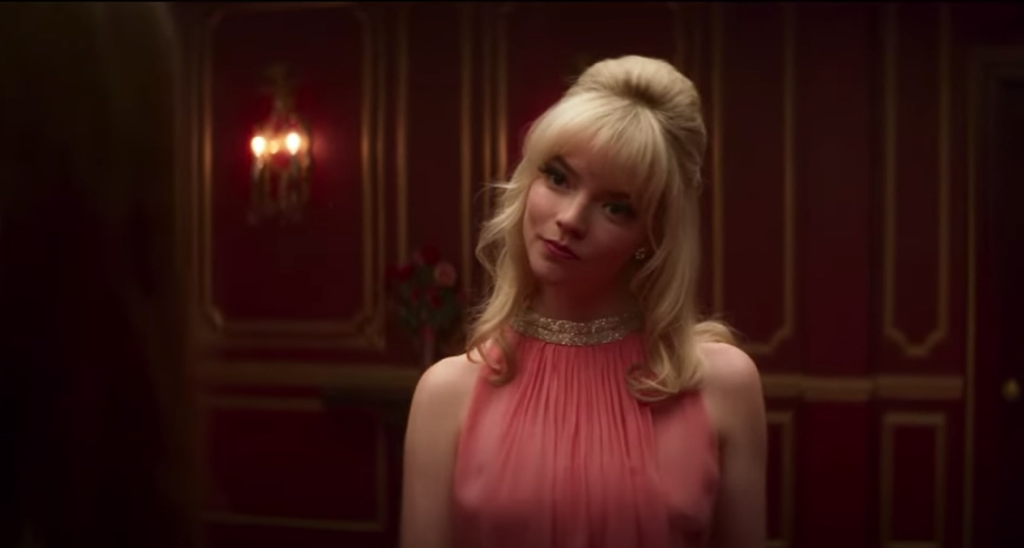Evan D.The swinging sixties, it’s a decade we look back on for its neon glow, over the top style and cultural influences. In film, we remember it as a decade in which Stanley Kubrick, Alfred Hitchcock and Ingmar Bergman were at the peak of their powers, when the French New Wave was taking over. Gather together what box office information you can from the time and what got people out to the theaters was still Disney musicals (The Jungle Book), Eastwood’s spaghetti western trilogy and a handful of James Bond Movies. The past is never just the parts we choose to remember from it. The best stuff survives and the rest gets swept under the rug. Today, in an era of film dominated by big franchise features, Edgar Wright — set aside that brief flirtation with directing Ant Man — is one of the handful of directors bucking the IP trend and taking swings on mid budgets and original ideas. He takes influence from the music, atmosphere and genre storytelling of the past to make something totally new. With Last Night in Soho, Wright uses his unique lens to explore some of the forgotten past of 1960’s London. That exploration, typical to all his films, is wonderfully stylish, but this time he too often misses the mark thematically.
Ellie (Thomasin McKenzie) is leaving her countryside home for the first time to attend fashion school in London. She’s talented and resourceful, crafting fashionable garb in her room out of newspaper or whatever else is at hand. Although Ellie has a great fondness for the big city, especially as it was back when her grandmother (Rita Tushingham) knew it. Many of her passions, especially music, come from Gran, who raised her after her mother’s death many years ago. Excitement to embark into the world quickly sours as the mousy Eloise finds the realities of life and people in the city to be almost unbearably harsh and cruel. Seeking to escape the catty girls that inhabit her dorm, Ellie finds a room to rent. Relatively untouched for half a century, this flat sends Ellie, every night, careening into vivid dreams of the late 60s and a young woman named Sandie (Anya Taylor-Joy) seeking fame and fortune as a singer in the city’s trendy nightclubs. What Ellie, and to an extent Sandie, soon discover is that underneath the veneer of neon signs, cigarette smoke and baroque pop music of 60’s Soho lies an insidious and prevalent culture of sexual abuse and exploitation. As her dreams turn to nightmares, Ellie becomes haunted by the fate of her long forgotten muse, even in her waking hours. Wright’s rendering of a swinging Soho is as slick and energetic as one might imagine from the guy who brought such a rollicking energy to previous efforts Baby Driver and Scott Pilgrim vs the World. Sandie and Ellie interchange throughout their shared scenes, observing one another behind the mirrored surfaces of sultry nightclubs. In one particularly transfixing moment, the young protagonists physically share a dance with swanky talent manager Jack (Matt Smith) in which they swap places as the camera moves in and out of frame. Visually there isn’t much to complain about in Wright’s hyper stylish film. When Last Night in Soho falters, it does so in translating visual flare into substantive filmmaking. All of the classic giallo horror tropes could have been utilized to elevate the tension between our nostalgic view of the past and its harsher realities, but consistently punts on the opportunity. Indeed, this is a film that feels well on its way to sound criticism of hyper-nostalgia through two acts. For that first hour Last Night in Soho seems like it wants to shine a light on the folly of making anything “Great Again” by looking backwards. Alas, those tantalizing ideas get lost in service of crafting suspenseful twists and turns. Most egregiously, the big climactic reveal — which I wont spoil here — actually undercuts a lot of the thematic heft built up over the first two acts. Gained through these decisions is a big final showdown pitting Ellie against her idealistic view of the past, but lost is a deeper story about the wounds inflicted by the parts of history we choose to ignore. Still, it is difficult not to be drawn in by the charms of Last Night in Soho. The role of Sandie feels tailor made for Anya Taylor-Joy, her intrinsic coolness and piercing eyes draw in the audience in with the same intensity she does Ellie. Thomasin McKenzie, for her part, beautifully handles a less flashy, but arguably more difficult role as the reserved Eloise. Her character is the only one in the entirety of this film that undergoes any sort of growth and McKenzie has to carry a lot of the emotional burden. While the performances are legitimately very good, it’s hard not to feel like they’re let down by the film in which they reside. McKenzie’s trepidatious protagonist, Taylor-Joy’s mercurial Sandie, could have been much less passive characters in a more biting examination of toxic masculinity. Evan Matt Smith’s smarmy Jack feels underutilized. In the end Wright opts for style and genre over something worthy of the very characters he wrote. That signature flare is still enough to command attention but it’s what you do when you have the eyes on you that counts. For that reason it’s difficult to see Last Night in Soho as anything but a disappointment, especially coming from a director who has so effectively combined style and substance previously. 6/10
Comments
|
Categories
All
Archives
April 2024
|
